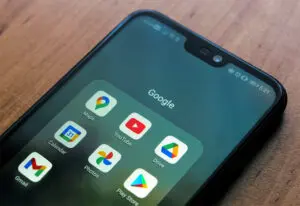
Should I Use Paid Search? 5 Reasons Why You Should
In 2000, Google made a game changer. It launched Google Adwords, providing the advertiser the tools necessary to launch and use paid search campaigns. While Adwords is in the hands of some small businesses, many accounts are maintained at the digital agency level using Google’s MCC (my client center, or manager account).
If you’re unfamiliar with Google Adwords, it’s essentially paid search (versus organic search). Pay per click (PPC) through Google allows you to manage paid search and display campaigns for brands. These paid ads are displayed in Google search results, or they’re displayed in display search via the Google partner network.
By using carefully-selected keywords, targeted landing pages, and quality ad content, brands can reach audiences that are interested in their products or services. As certified Google Partners, we’re all about Google Adwords. We see the results on a day-to-day basis for the clients and accounts we manage.
Ten Reasons Why You Should Use Paid Search
1. ROI
Many of us recall the days of traditional marketing and advertising. We put a lot of content out, but none of it was trackable. We paid the ad spend and sat back and crossed our fingers. When the phone would ring, it was great, but we weren’t able to attribute it to one spend over the other, or one campaign over the next. Those days have passed. One of the best advantages of online marketing is the ability to track success.
Online marketing is measurable and attainable. If something isn’t working, change it. When the link is incorrect, adjust it; the budget is too high, decrease it; there’s a seasonal or go-to-market push, double the spend; something is timely and relevant, build new campaigns to target, track, measure, and repeat. Pay per click is one of the most attainable and flexible online tactics to target and measure.
Here are a few of the flexible options provided by Google Adwords when you use paid search
—Organize similar keywords into succinct campaigns and ad groups. Segmenting keywords makes it easier to analyze the data and to create more relevant targeting.
—Use bid, location, ad schedule and device adjustments. This includes utilizing positive bid adjustments as well call extensions, sitelink extensions, review extensions, and structured snippet extensions to highlight specific aspects of a product or service and provide context on the nature and variety of a product or service before visitors click to the site.
—Configure website and call conversion tracking to provide data on what’s working and where budget increases are needed to capitalize on opportunities. Conversion tracking is vital to the success of Adwords. This includes ensuring the type of conversions being tracked evolve to the needs of an Adwords advertiser.
—Segment keywords into the formats. +Broad +match +modified (all keywords or closely related words must be included in the search query to trigger ads). “Phrase match” (a string of keywords in a specific order will trigger ads). And [exact match] (search term must match keyword exactly to trigger ads).
2. Bootstrap-ability
I love bootstrapping. Who doesn’t want a leg-up into an established presence while the slower and more organic methods of online advertising are taking effect? I often explain Google Adwords as a bootstrap technique into either online search or into a more competitive or out-of-reach area that a brand hasn’t been able to reach—either due to time-in-market or to the resources necessary to reach that market. While search engine optimization (SEO) is the crown of digital marketing, a limitation of SEO is that it’s slow and steady. SEO takes time before you notice results—not true of Google Adwords. With Adwords, you’re instantly hitting search with results.
Not only does Google Adwords provide this feedback, but it’s also an excellent indicator of market resonance. With Google Adwords, you’re able to test keywords and ad copy on target audiences. You’re able to extract the content or A/B experiments that work well and spend time optimizing and replicating those results. You can then take that data and fold it into you onsite SEO. It’s a win-win. Depending on how well you’ve built—or had your marketing agency build—your paid search campaign, you can see results in minutes.
3. Daily Budgets
Google Adwords runs on daily budgets. Daily budgets are nice because campaigns can be paused, increased or decreased at any point. Advertisers can set their maximum daily spend and can expect a relatively consistent monthly budget on their campaigns. Our agency manages Google Adwords accounts all day. There are some well-built accounts and some quite frankly don’t cut the mustard. For Adwords to be successful for your business, the campaigns need to be built and managed well. A solid understanding Adwords and active Adwords campaign management ensure Adwords campaigns stay relevant. Monitoring and management of a campaign include points where bid strategies are adjusted, device and location targeting are managed, new content is created, and overall, that which is performing is optimized while that which is not is removed.
Here is a foundational Adwords campaign structure
—Search network—with or without advanced features
—Display network (this includes remarketing, if it applies to your brand)
—Video advertising—with or without TrueView
4. Outrank the Competition
Because Google Adwords is immediate, flexible and dynamic, it can help you outrank the competition. So long as you know what you’re doing, you can mostly steer them in any direction you choose. Like everything else with digital marketing, brands who do more activities better will outrank the competition because they have better quality scores, more trust on their domains, and more relevance with the ads they write and the traffic they send to their landing pages. Even if a brand’s competitors are also doing ‘everything right’ from a content, branding and advertising perspective, and they’re also online with Google Adwords, that brand can still do well with Adwords. The majority of search results contain Adwords placements—most of which are above-the-fold content. So, if your business hasn’t tried Google Adwords yet, now might be the time.
Did you think brands should use paid search? Do you use paid search? Have you used PPC before? If so, which features are your favorite, less favorite? Where do you think Adwords will go from here?
Recent Posts
Custom Website Design and Development vs. Off-the-Shelf: What’s Right for Your Business?
Having a website that represents your brand and serves your business effectively can make or break your success in 2025. This poses the important question: Should you opt for custom […]
Read MoreHow to Rebrand Your Instagram for Better Engagement and Brand Recognition
Your Instagram presence can act as a beacon for brand recognition and customer engagement. It’s about painting a picture so compelling that your audience cannot help but be drawn to […]
Read MoreFrom Clicks to Conversions: The Science of High-Performing Digital Ads
The journey from interest to purchase is often paved with digital advertisements. However, not all digital ads are crafted equally. While some fade into the background, others command attention and […]
Read MoreBrand Consistency Examples That Will Make You Rethink Your Marketing Strategy
A consistent and strategic brand identity across all platforms is not just beneficial; it’s essential. By exploring real-world brand consistency examples, we uncover the immense power of maintaining a coherent […]
Read More3 Ways to Transform Blogs With SEO and Make Google Love Your Content
As marketers and business owners, our goal is to ensure the blogs we publish confidently stride into the spotlight of Google’s top search results. Achieving this requires great content, but […]
Read More



